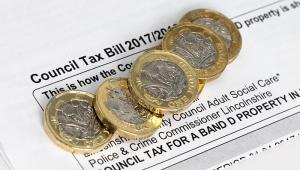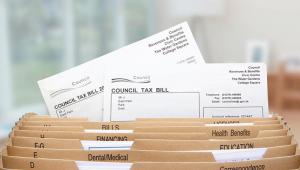“Incredible fiscal pressure” has left the average Band D household in England facing the prospect of paying out an additional £75 per year from April 2019, the institute warned.
CIPFA’s council tax survey, which received responses from 312 English local authorities, found that 301 would be increasing their council tax in 2019-20.
The survey revealed that while the average households in Greater London were set for the highest increases – 5.1% – there remains a substantial gap in cash terms between their total bill (£1,476.39) and those of households in the North East (£1,883.95).
CIPFA’s research also showed that local police and crime commissioners across England appear to be unanimously doubling the police precept on the council tax bill – following new flexibility announced by the communities secretary last year, which allowed for a doubling the precept from £12 a year to £24.
Rob Whiteman, chief executive of CIPFA, said: “The extent of the rises across the country is a reflection of the incredible fiscal pressure faced by local authorities and police.
“Local authorities have faced the most significant cuts to spending over the last ten years, and despite the government’s announcement that austerity is ending, for local authorities this is clearly not the case. Long term they remain in an unsustainable position.
“Ministers need to make radical decisions to secure the future of public services. Council tax is regressive, and increasingly divorced from the reality of property values. They will not be sufficient to meet rising demand for services such as adult, and increasingly, children’s social care.”
The 4.5% (£75.60) increase is the second highest this decade, after last year’s 5.1% (£80.92) rise, CIPFA said.
Richard Watts, chair of the Local Government Association’s resources board, said that between 2010 and 2020 councils would have lost 60p out of every £1 the government had provided for services.
“Faced with such funding pressures, many councils feel they have little choice but to ask residents to pay more council tax again this year to help them try and protect their local services. With councils facing a funding gap of more than £3bn this year, council tax rises will not prevent the need for continued cutbacks to local services,” he said.
A Ministry of Housing, Communities and Local Government spokesperson said: “We are investing in Britain’s future by providing local authorities with access to £45.1bn this year – increasing to £46.4bn next year – to meet the needs of their residents.”
“Councils, not central government, are responsible for managing their own resources. Taxpayers can veto excessive increases via a local referendum.”











